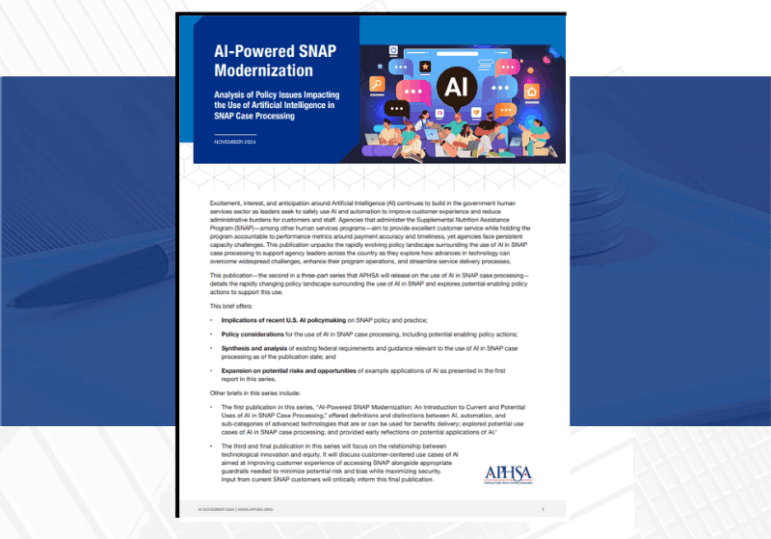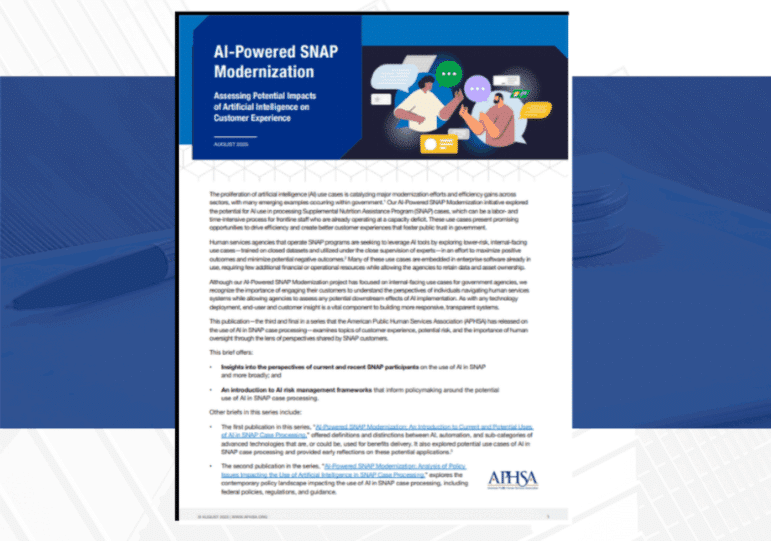The American Public Human Services Association (APHSA) aims to help its members advance their missions through a shared approach to Artificial Intelligence (AI) adoption. The possibilities of AI are transformative, and urgency is needed to mobilize the emerging technology to address operational challenges and improve service delivery in the human services sector. By embedding equity principles and centering customer experience in our decision-making and design of AI, we can proactively mitigate risks of creating harm and build inclusive solutions that foster transparency, accountability, and trust. The following foundational tenets serve as grounding principles to help the human services sector lead the way in generating AI-enabled solutions that improve outcomes for individuals, families, and communities.
Foundational Tenets for Adoption of AI in Human Services
AI is a promising tool to support human efforts, not a replacement for critical human thinking and oversight.
Although AI represents a technological disruption in the way work is completed, we believe that it can both deepen and broaden our talents, increase capacity and create opportunities for accelerating our impact. We recognize that effective implementation will require us to be adaptive in the way we support and empower our workforce. AI-enabled efficiencies can empower human services employees to focus their efforts on the more nuanced aspects of their roles, including building meaningful human-to-human interactions with the community and centering mission-driven efforts.
Effective use of AI in human services requires a deep understanding of current technology and promising design principles for re-engineering these systems.
The adoption of AI as a new operational norm is an opportunity to deploy human-centered design principles to redesign our systems based on the needs and experiences of human services customers. Workforce shortages and inefficient technology solutions are major challenges for human services agencies that AI can help to solve when paired with strategies to streamline workflows, simplify tasks, and modernize outdated technology.
Data security and a commitment to harm mitigation in AI adoption will foster trust and enable collective learning at a time when our knowledge of capabilities and consequences is limited.
In this context, we understand harm mitigation as both prevention and repair of harm stemming from the uses of AI. Even through a “Do No Harm” approach, the potential for damage exists, and persistent and careful attention to transparency in early AI design and implementation is essential. We recognize that effective AI is conditioned on quality, de-biased information and that robust and active oversight and safeguarding of inputs to AI tools are essential to producing the right outputs.
Contact Jess Maneely, Assistant Director, Process Innovation, to learn more about APHSA’s work on AI.






